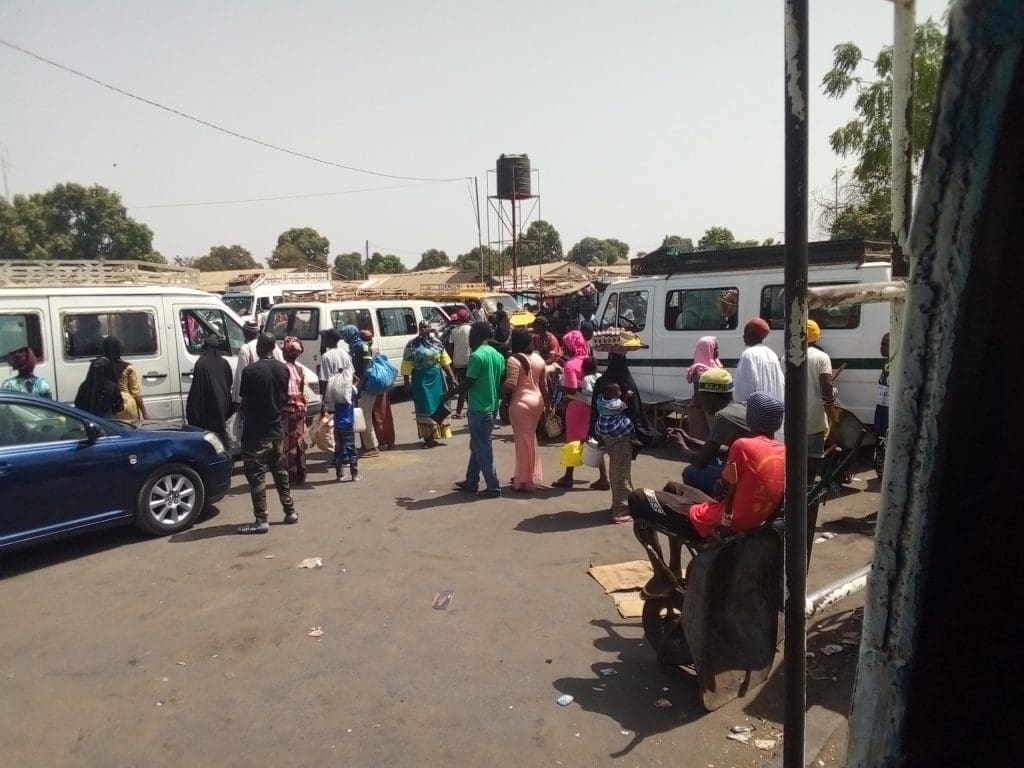For some Gambians, the idea of respecting health precautions against coronavirus such as keeping a distance to avoid possible contamination from the nearest person sounds ridiculous and unimaginative.
“People keeping at least a metre from each other is not possible, at least not for long in this our society” says Muhammed Janneh while listening attentively to the female voice on the radio airing precautions on how to avoid contracting Covid-19.
This is before the usual distance learning sessions targeting pupils and students to make up for the abrupt closure of schools in March as the coronavirus morphed into a pandemic.
WHO-recommended health guidelines and regulations are aired every hour to remind publics in The Gambia to wash hands regularly using disinfectants, cough or sneeze in the V of their elbows, avoid regular touching of the eye and practice social or physical distancing.
It is the last of such precautionary measures that Mr. Janneh has an issue with and he is not alone in his view
Antou Ceesay, one of his neighbours who is also listening in, grunts in agreement at the suggestion that the health officials are pretending that they do not know that encouraging people to keep their physical distance from the next person is an exercise in futility.
“People will socialise anyway” Ceesay adds, emphasising his point with every sinew of his being.
Both Janneh and Ceesay in their early 60s, say they have never witnessed recent scenes which tended to prevent people from coming together and socialising in the best way Africans know how.
Speaking in the local Wolof dialect, the two men rebuke the whole idea of telling people to stay at home and refrain from encouraging friends and other acquaintances to visit them and compromise the safety measures introduced to minimise the spread of the respiratory illness which is now a pandemic for the world.
“It’s like telling a cock to stop crowing” Ceesay says, driving home his point about the allegedly ludicrous nature of such a precaution.
While these sentiments about social distancing are by no means universal in The Gambia, markets and car parks provide a mirror to reliably gauge the apparent indifference if not downright disdain with which people hold appeals for social distancing.
Public places are busting at the seams as people continue to flock to them as if nothing is amiss in a country where coronavirus cases have jumped from 10 to 17 within the space of three days.
Far from abandoning old habits, people including young men and women uninhibited by warnings about the risks and dangers inherent in contracting Covid-19, continue to appear in large conversational groups and other social events despite their prohibition by the state whose enforcement of the restrictions lacks bite.
Markets in Serrekunda and outlying towns have never been more crammed with people doing their daily round of shopping for food and other items.
Gambia has suffered one fatality from the disease, a Bangladeshi Muslim who was on an evangelising mission in the country in March and died hours after being diagnosed with the ailment.
It is long ago now since the country registered its first case as health authorities scramble to introduce mass Covid-19 tests in the sleepy town of Bakau, 13km south of the capital Banjul following a surge in the number of infections in May.
It also signals the first community infection since the virus was first confirmed in the country.
Recognising the mammoth task of turning a groundswell of public opinion on the side of taking every precaution in the book to avoid the disease from taking a further foothold in The Gambia, radio journalists have joined the information war with health officials to echo and reecho messages such as “Covid-19 is real” and “Follow health guidelines to be safe”.
However, this part of the campaign against the disease does not seem to wash with some sections of the public who insist on maintaining old tendencies informed by personal convictions.
There are no shortage of Covid-19 skeptics or doubting Thomasses who have an ear for conspiracy theories suggesting that the disease was “cooked in a Chinese lab” and now being used as a means of depopulating the world.
Others hold the view that by rendering mosques off-limit for Muslim worship, a conspiracy was being hatched against Islam.
This has split Muslim opinion leaders in The Gambia, leaving the average worshippers confused at best.
Although there is a different feel to Ramadan this year thanks to Covid-19 as people grudgingly keep away from mosques and other forms of congregational worship, it has done little to minimise crowds.
“It’s an inevitability, crowds must gather in markets and other places” says a middle aged man queuing outside a bank, waiting to collect his salary which had been long overdue.
Looking at how readily people flout the most basic of regulations to save them and their kind from the monstrous jaws of a deadly pandemic, it would be difficult to argue with him.
AS/APA


